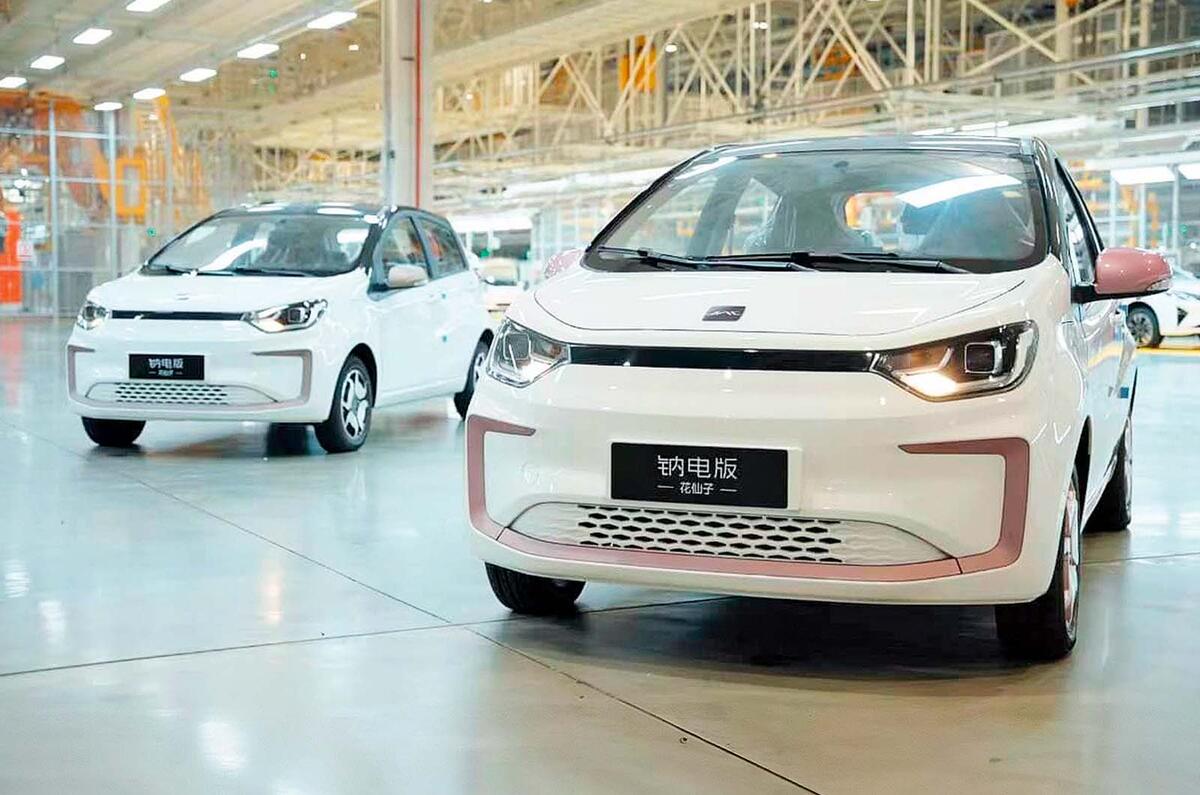The accelerating march of progress must be giving product planners at car manufacturers a tough time.
Car technology has never been in such a state of flux as it is now, and given lithium ion batteries only really became a commercial big deal in the 1990s, the sudden shift towards cars powered by them is extraordinary.
But historical perspective as to what comes next is always useful. A close look at the single-cylinder engine of the Benz Patent-Motorwagen of 1885, for instance, reveals a crankshaft and internals exposed to the elements, something that’s unthinkable today.
Given how fast things change in this business, chances are lithium ion batteries – which have drawbacks in terms of sustainability, energy security and cost – will be overtaken by another type of energy storage. Sodium ion batteries (SIBs, also known as Na ion batteries or NIBs) have been on the horizon for a while but they weren’t expected to be mature enough for cars for some time yet.
But early in January, Chinese car manufacturer JAC announced it was shipping a small electric car from its Yiwei brand equipped with a SIB from Hina Battery. JMEV, another Chinese firm, also announced the rollout of a new EV powered by SIBs from Farasis Energy. The JMEV EV3 (Youth Edition) is a micro-EV city car and has a range of 156 miles.
The downside of SIBs is mainly the lack of energy density, which goes hand in hand with increased weight (too few Wh/kg compared with lithium technologies), but the upsides are substantial.
SIBs are benign, containing no lithium or cobalt, and sodium is abundant worldwide. The electrolyte is simpler and the current collectors of the electrodes can be aluminium instead of copper, which is more sustainable and cheaper.
Overall, SIBs are around 30% cheaper than lithium ion. Given that the battery of an EV today is roughly 40% of the cost of the entire car, that’s a major benefit.
Manufacturers are working on increasing the energy density of SIBs and the JMEV EV3 battery is quoted as storing 140-160Wh/kg but Farasis is aiming for a second generation with an increased capacity of 160-180Wh/kg this year.
Turn that around another way and low energy density means that to give the range of a powerful lithium ion battery, a SIB would have to be heavier, which in turn would affect range.
Farasis has set itself a target of 180-200Wh/kg by 2026, making the SIB suitable for a wider range of applications. It is still low compared with a typical lithium ion EV battery, which can be around 270Wh/kg. That said, serious commercial development of SIBs took a back seat as lithium ion technology came to the fore in the 1990s so there’s some catching up to do.





Join the debate
Add your comment
The bigger picture is that all static (household, power station) / large scale EVs (locos, ships etc) could use these batteries leaving far more Li Ion battery capacity for personal transport.
Yes, The rate of increase in supply of the commodities in recent months combined with less demand than expected has meant that lithium ion battery prices have somewhat collapsed. The price of batteries has been driven by speculation on commodity prices and as sodium is ubiqutious it will dampen speculation in the commodities used for competing battery technologies.
sodium will always be cheaper than lithium based battery so it will keep the competing technologies honest.
Headline is misleading. So the real question here is do we really want heavier less energy dense sodium ion batteries even though they may be a fair bit cheaper than their lithium ion equivalents? This sounds like a parallel development path rather than actual progress.
Yet another stoty telling us that soon, but not yet, EVs will be better, so dont buy one yet, wait until they have the tech sorted. And yet that day never seems to get any closer
Article says nothing of the sort. BEVs and ICE cars get better every day it's called evolution.
But so what if you need to buy any of these now? Current BEVs have the tech "sorted" enough to be practical already for most people. Yes, they will be better in future, but if you need to buy a car now.......?